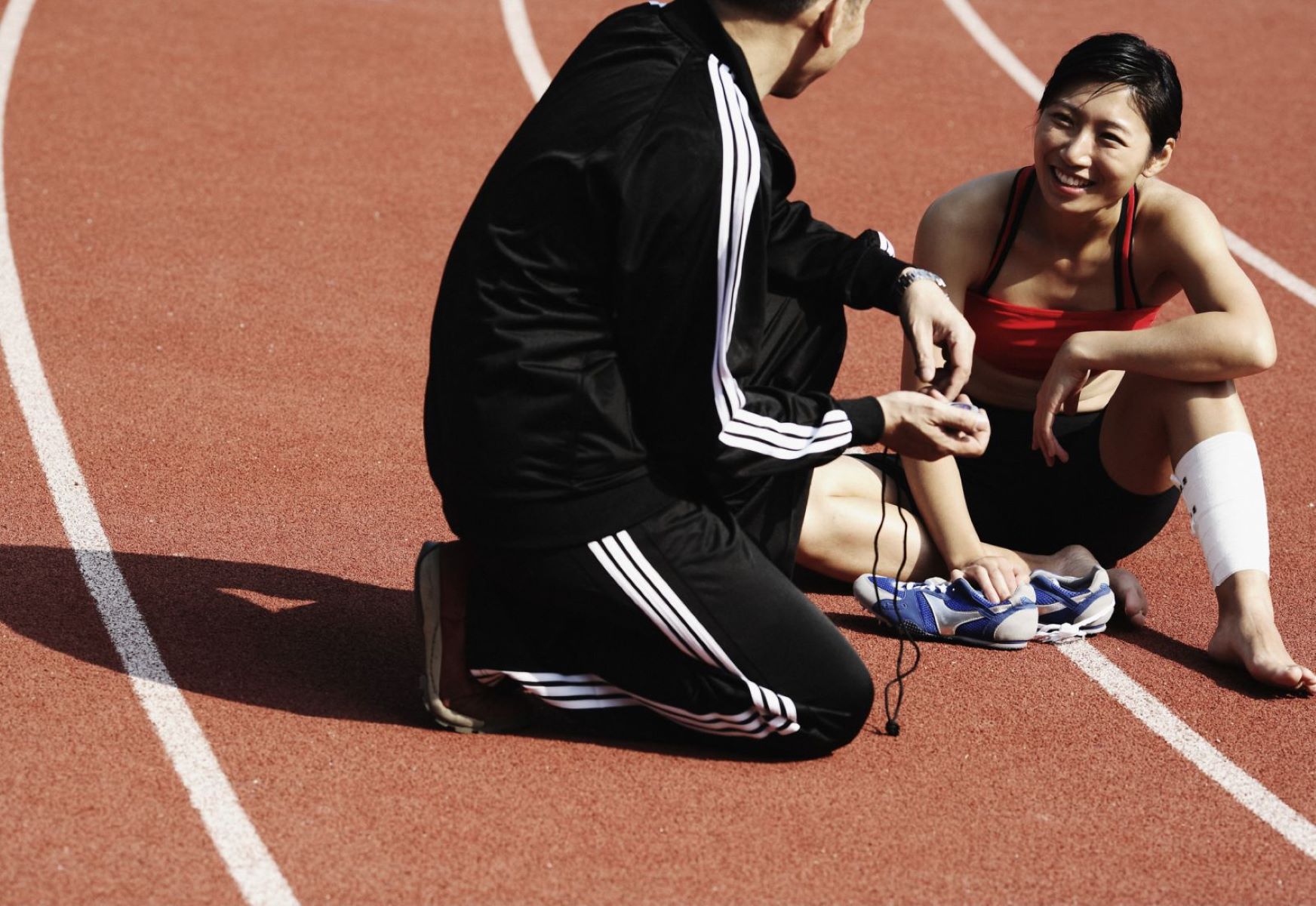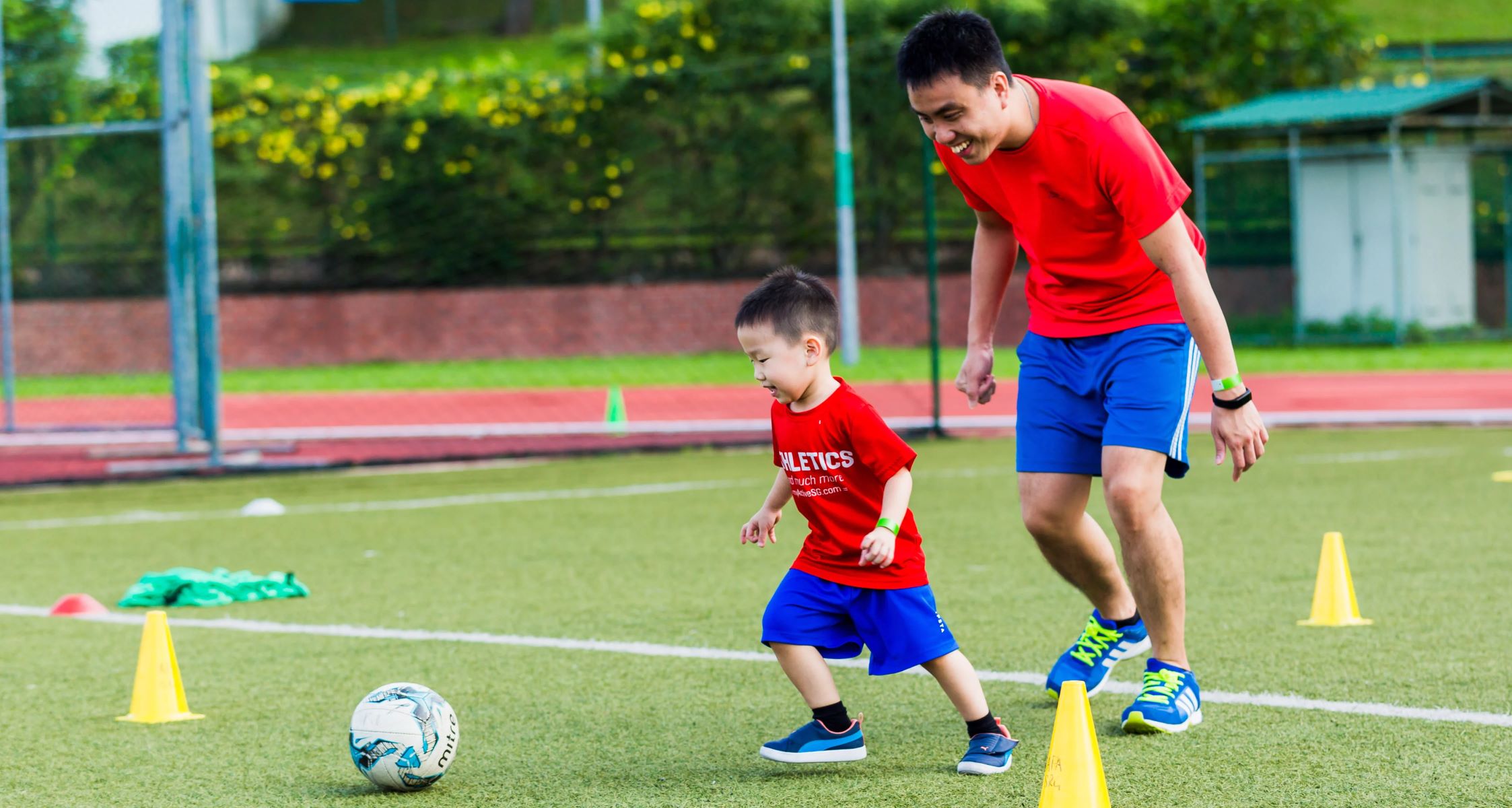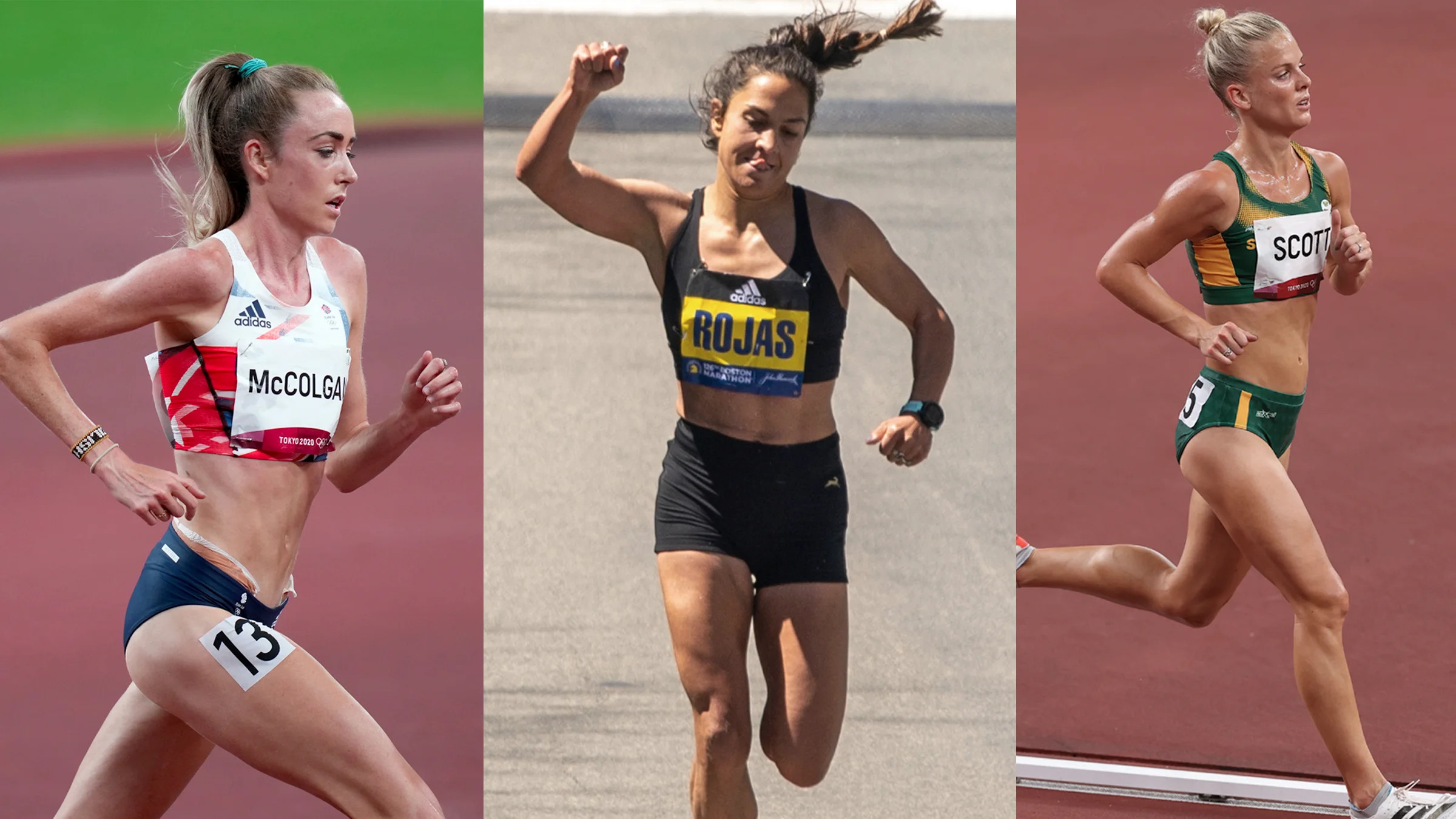Home>Misc>Featured>How Can Sports Psychology Improve Athletic Performance


Featured
How Can Sports Psychology Improve Athletic Performance
Modified: August 19, 2023
Discover how sports psychology techniques can enhance athletic performance. Learn how to harness mindset and mental strategies to become a featured athlete.
Introduction
Sports psychology is a rapidly growing field that focuses on the mental and emotional factors that impact athletic performance. It examines the psychological aspects of sports and how they intersect with physical abilities to enhance an athlete’s overall performance. By understanding the relationship between the mind and body, sports psychologists can help athletes overcome challenges, improve their mental resilience, and reach their full potential.
In today’s highly competitive sports arena, where physical skills alone may not be sufficient to excel, athletes are increasingly turning to sports psychology to gain a competitive edge. Whether it’s a professional athlete trying to achieve peak performance or a high school player aiming to improve their game, the principles and techniques of sports psychology can be applied to athletes of all levels and disciplines.
The role of a sports psychologist is to work closely with athletes, coaches, and even teams to address a wide range of psychological factors that can affect performance. From goal setting and visualization techniques to managing performance anxiety and stress, sports psychology offers a holistic approach to athletic performance enhancement.
This article will delve into the various aspects of sports psychology and how they can significantly impact an athlete’s performance. By understanding how sports psychology approaches can be applied to different areas of an athlete’s life, athletes can develop the mental tools necessary to thrive in their sport.
The Role of Sports Psychology in Athletic Performance Enhancement
Sports psychology plays a crucial role in enhancing athletic performance by addressing the psychological factors that can impact an athlete’s game. While physical training and skill development are essential, the mental aspect of sports cannot be overlooked. Here are some key ways in which sports psychology contributes to performance enhancement:
- Goal Setting and Achievement: Sports psychology emphasizes the importance of setting specific, measurable, achievable, relevant, and time-bound (SMART) goals. By helping athletes set realistic and challenging objectives, sports psychologists enable them to stay focused, motivated, and work towards continuous improvement.
- Imagery and Visualization Techniques: Visualizing success and mentally rehearsing athletic performances can have a profound impact on an athlete’s actual execution. Sports psychologists use imagery techniques to help athletes vividly imagine themselves performing at their best, thereby increasing confidence and improving the overall execution of skills.
- Self-confidence and Mental Toughness: Confidence is key to athletic success, and sports psychologists employ strategies to enhance self-confidence in athletes. By building mental toughness and resilience, athletes are better equipped to handle challenges, setbacks, and pressure situations, ultimately elevating their performance.
- Managing Performance Anxiety and Stress: Nerves and anxiety can hinder an athlete’s performance. Sports psychologists provide techniques to manage anxiety and stress, such as breathing exercises, relaxation techniques, and reframing negative thoughts. By learning to control their emotions, athletes are able to perform at their best under pressure.
- Attention and Concentration Techniques: Maintaining focus and concentration amidst distractions is vital for athletes. Sports psychologists teach athletes how to improve their attentional control through techniques such as mindfulness, selective attention, and cue utilization. This allows athletes to stay in the present moment and respond effectively to the demands of their sport.
- Motivation and Goal Orientation: Understanding an athlete’s motivation and goal orientation is essential for optimizing performance. Sports psychologists help athletes identify and tap into their intrinsic motivations, aligning their goals with their values and passions. This creates a strong sense of purpose and drive that fuels their performance.
- Team Dynamics and Communication: Sports psychology not only focuses on individual athletes but also recognizes the significance of team dynamics. Sports psychologists work with teams to improve communication, cohesion, and collaboration among team members. By fostering a positive and supportive team environment, athletes can perform better collectively.
- Injury Recovery and Rehabilitation: Sports psychologists play a vital role in helping athletes mentally navigate the challenges of injury recovery and rehabilitation. They provide support, coping strategies, and motivation to athletes during the healing process, enabling them to regain confidence and eventually return to peak performance.
By incorporating the principles and techniques of sports psychology into their training and preparation, athletes can gain a competitive advantage. Sports psychology goes beyond physical skills and empowers athletes to fully harness their mental capabilities, ultimately enhancing their athletic performance.
Goal Setting and Achievement in Sports Psychology
In the realm of sports psychology, goal setting is a fundamental aspect of enhancing athletic performance. Effective goal setting allows athletes to have a clear direction, stay motivated, and continuously strive for self-improvement. Here, we explore how goal setting techniques are utilized in sports psychology to optimize an athlete’s performance.
Setting goals that are specific, measurable, achievable, relevant, and time-bound (SMART) provides athletes with a roadmap to success. Specific goals help athletes focus on the areas that require improvement and provide a clear target to work towards. Measurable goals allow athletes to track their progress and evaluate their performance objectively. Achievable goals strike a balance between challenging and realistic, ensuring that athletes are not overwhelmed. Relevant goals align with an athlete’s overall aspirations and are directly related to their performance. Time-bound goals provide a sense of urgency and create a timeframe for achieving desired outcomes.
Sports psychologists assist athletes in defining and refining their goals based on various factors such as skill level, competition level, and personal objectives. By breaking long-term goals into smaller, manageable short-term goals, athletes can experience a sense of progress and maintain motivation along the way.
Moreover, sports psychologists emphasize the importance of setting process-oriented goals alongside outcome-oriented goals. Process goals focus on the actions and behaviors required to achieve desired outcomes, while outcome goals concentrate on the end result. By prioritizing process goals, athletes can focus on the controllable factors within their performance, such as technique, effort, and focus. This approach allows athletes to maintain a sense of agency and intrinsic motivation, which leads to enhanced performance.
Regular assessment and review of goals are essential components of the goal-setting process. Through objective feedback and self-reflection, athletes and sports psychologists can evaluate progress, make necessary adjustments, and set new goals if required. This ongoing evaluation ensures that goals remain relevant and aligned with an athlete’s evolving needs.
Goal setting in sports psychology goes beyond the hierarchical structure of short-term and long-term goals. It also involves setting performance goals, outcome goals, and process goals. Performance goals refer to improving specific aspects of performance, such as shooting accuracy in basketball or serve consistency in tennis. Outcome goals revolve around achieving specific results, such as winning a tournament or reaching a personal best. Process goals, on the other hand, focus on the actions and strategies required to achieve desired outcomes.
By emphasizing the process and establishing challenging yet achievable goals, athletes can experience a sense of achievement and maintain motivation throughout their journey. Goal setting in sports psychology serves as a powerful tool for athletes to stay focused, exceed their limits, and continually strive for excellence.
Imagery and Visualization Techniques in Sports Psychology
Imagery and visualization are powerful techniques employed in sports psychology to enhance athletic performance. By harnessing the power of the mind to create vivid mental images, athletes can improve their focus, confidence, and overall performance. This section delves into the role of imagery and visualization techniques in sports psychology and how they can optimize an athlete’s performance.
Imagery involves creating mental representations or images of specific movements, actions, or scenarios related to performance. It allows athletes to mentally rehearse their skills, experience successful performances, and imagine themselves overcoming challenges. By engaging the senses and creating a multisensory experience in their minds, athletes can enhance their motor skills, improve technique, and build confidence.
In sports psychology, visualization refers to the process of mentally creating or recreating a desired performance in a detailed and vivid manner. Athletes visualize themselves executing their sport-specific techniques flawlessly, achieving their goals, and experiencing success. Visualization helps athletes build mental resilience, increase self-confidence, and reduce performance anxiety.
There are two main types of imagery frequently used in sports psychology: internal and external imagery. Internal imagery involves visualizing the performance from the athlete’s own perspective, as if they were experiencing it firsthand. It allows athletes to mentally imagine the movements, sensations, and details of their actions. External imagery, on the other hand, involves visualizing the performance from an external perspective – as if watching oneself on a movie screen. This technique provides a more objective and detailed view and is particularly useful for strategic decision-making and analyzing performance.
Guided imagery is another technique used in sports psychology, where athletes are guided through a visualization exercise by a sports psychologist or through audio recordings. These guided imagery sessions typically involve relaxation techniques, deep breathing, and scripted imagery to create a focused and immersive experience. Guided imagery can help athletes reduce stress, enhance focus, and mentally prepare for important competitions or challenging situations.
Research indicates that imagery and visualization techniques can have significant benefits for athletes. By repeatedly mentally rehearsing a specific skill or performance, athletes can strengthen the neural connections in their brain. This process, known as neuroplasticity, leads to improved muscle memory, increased coordination, and enhanced motor skills.
Moreover, imagery and visualization can positively impact an athlete’s confidence and self-efficacy. When athletes repeatedly visualize themselves successfully executing their desired performance, they develop a strong belief in their abilities. This confidence translates into improved performance by reducing self-doubt and anxiety.
It is important for athletes to practice imagery and visualization consistently to reap the full benefits. Athletes can incorporate imagery into their regular training routine by setting aside dedicated time for mental rehearsals. This can be done through individual practice sessions or as part of pre-competition rituals. With regular practice, athletes can sharpen their mental skills and enhance their overall performance.
Imagery and visualization techniques are valuable tools in the arsenal of sports psychology. By harnessing the power of the mind, athletes can improve their focus, build confidence, and ultimately optimize their performance in their chosen sport.
Self-confidence and Mental Toughness in Sports Psychology
Self-confidence and mental toughness are crucial factors in athletic performance, and sports psychology plays a vital role in developing and enhancing these attributes. Self-confidence refers to an athlete’s belief in their abilities to successfully execute skills and achieve desired outcomes. Mental toughness, on the other hand, encompasses the ability to maintain focus, perform under pressure, and bounce back from setbacks. In this section, we explore how sports psychology cultivates self-confidence and mental toughness in athletes.
Sports psychologists employ various strategies to develop an athlete’s self-confidence. One effective approach involves praising effort rather than focusing solely on outcomes. By acknowledging the hard work and dedication put forth by the athlete, their belief in their abilities grows. Providing constructive feedback and highlighting areas of improvement also helps athletes maintain a realistic perspective and a growth mindset.
Visualization and positive self-talk are additional techniques used in sports psychology to enhance self-confidence. By visualizing successful performances, athletes create a mental blueprint for achieving desired outcomes. Positive self-talk involves replacing negative or self-limiting thoughts with affirming and empowering statements. This helps athletes develop a more positive mindset and reinforces their belief in themselves.
Mental toughness is developed through a combination of psychological skills and resilience-building exercises. Sports psychologists work with athletes to identify and overcome challenges and setbacks, teaching them how to remain focused and composed in high-pressure situations. By developing coping mechanisms for stress and anxiety, athletes can maintain their performance levels even in demanding circumstances.
One key aspect of mental toughness is the ability to manage and regulate emotions effectively. Sports psychologists help athletes understand their emotional responses and teach them techniques such as deep breathing, relaxation exercises, and mindfulness to stay grounded and focused. This enables athletes to make rational decisions and perform at their best, even when faced with adversity.
Goal setting plays a significant role in developing mental toughness as well. By setting ambitious yet attainable goals, athletes are exposed to challenges that test their mental fortitude. As they overcome obstacles and achieve their objectives, their confidence and mental toughness grow. Sports psychologists guide athletes through this process, working with them to set goals that provide appropriate challenges without overwhelming them.
Resilience-building exercises, such as stress inoculation training and simulated high-pressure situations, are also employed in sports psychology. These exercises expose athletes to stressors in a controlled environment, allowing them to learn effective coping strategies and adapt to challenging circumstances. By exposing themselves to controlled stress, athletes become more resilient and mentally tough.
Ultimately, the development of self-confidence and mental toughness is a continuous process in sports psychology. Athletes must actively work on these skills, incorporating the techniques and strategies taught by sports psychologists into their training and competition routines. With time and practice, athletes can cultivate unwavering self-belief, resilience, and the mental toughness necessary to excel in their sport.
Managing Performance Anxiety and Stress in Sports Psychology
Performance anxiety and stress are common challenges faced by athletes at all levels of competition. In sports psychology, effective strategies are implemented to help athletes manage and overcome these psychological barriers. By addressing performance anxiety and stress, athletes can perform at their best and maximize their potential. This section explores the techniques utilized in sports psychology to manage performance anxiety and stress.
One of the primary approaches in managing performance anxiety is relaxation training. Sports psychologists teach athletes various relaxation techniques, such as deep breathing exercises, progressive muscle relaxation, and visualization exercises. These techniques help athletes calm their minds, reduce physical tension, and restore a sense of focus and control. By incorporating relaxation training into their routine, athletes can alleviate anxiety symptoms and perform with greater ease.
Cognitive restructuring is another technique used in sports psychology to manage performance anxiety. This involves identifying and challenging negative thoughts and replacing them with more positive and empowering beliefs. By reframing negative self-talk, athletes can cultivate a more confident and optimistic mindset. Cognitive restructuring empowers athletes to view challenges as opportunities for growth rather than insurmountable obstacles.
Setting realistic expectations is essential in managing performance anxiety and stress. Sports psychologists work with athletes to establish achievable goals and emphasize the importance of focusing on individual progress rather than solely comparing oneself with others. By shifting the focus to personal growth and improvement, athletes can reduce the pressure they put on themselves and alleviate performance anxiety.
Mindfulness techniques play a significant role in managing stress and anxiety in sports psychology. By practicing mindfulness, athletes learn to stay fully present in the moment without judgment or attachment to outcomes. Mindfulness exercises can include breathing exercises, body scans, and awareness of thoughts and emotions. By grounding themselves in the present, athletes can reduce anxiety and improve their overall performance.
Pre-competition routines and rituals are often used to manage performance anxiety. These routines provide a sense of familiarity and control, helping athletes mentally prepare for competition. Sports psychologists assist athletes in developing personalized routines that incorporate relaxation techniques, visualization, and positive affirmations. By following these routines, athletes can create a calm and focused mindset before stepping onto the field or court.
Effective communication between athletes and their coaches is vital in managing performance anxiety and stress. Sports psychologists facilitate open and honest communication channels, ensuring that coaches have a good understanding of an athlete’s mental state. By establishing a supportive and understanding environment, coaches can provide the necessary guidance and reassurance to help athletes manage their anxiety and stress levels.
While it’s impossible to completely eliminate performance anxiety and stress, sports psychology equips athletes with the tools and techniques to effectively manage these challenges. By implementing relaxation techniques, practicing cognitive restructuring, setting realistic expectations, incorporating mindfulness, following pre-competition routines, and fostering open communication, athletes can navigate performance anxiety and stress, perform at their best, and enjoy their sport to the fullest.
Attention and Concentration Techniques in Sports Psychology
Attention and concentration are crucial elements of peak athletic performance. Sports psychology offers a range of techniques to help athletes improve their focus and maintain concentration during competition. By enhancing attentional control, athletes can optimize their performance and achieve better results. This section explores the attention and concentration techniques utilized in sports psychology.
Mindfulness training is a valuable technique employed in sports psychology to improve attention and concentration. Mindfulness involves intentionally bringing one’s attention to the present moment, without judgment, and with a heightened sense of awareness. By practicing mindfulness exercises, athletes can train their minds to stay focused on the task at hand, reducing distractions and mental chatter. Mindfulness also helps athletes notice and let go of distracting thoughts or emotions that may hinder performance.
Cue utilization is another technique used to enhance attention and concentration. Athletes are taught to identify specific cues or triggers in their sport that signal a need for focused attention. For example, a basketball player may focus on the rim or the net before shooting. By consciously attending to these cues, athletes can narrow their focus and effectively direct their attention to the relevant aspects of their performance.
Goal-directed attention involves consciously directing attention to specific actions or strategies that are relevant to achieving performance goals. By setting clear objectives and breaking them down into manageable tasks, athletes can allocate their attention to the specific components of their performance that lead to success. This technique helps athletes filter out irrelevant distractions and maintain a strong focus on the present moment.
Attentional flexibility is an important aspect of attention and concentration in sports psychology. Athletes are encouraged to develop the ability to shift their attentional focus between different stimuli or aspects of their performance as needed. This flexibility allows athletes to adapt to changing situations and adjust their focus based on the demands of the game or competition.
Managing distractions is a crucial skill taught in sports psychology to improve concentration. Athletes learn strategies to minimize external distractions, such as crowd noise or visual stimuli, through techniques such as visualization or mental rehearsal. Internal distractions, such as negative thoughts or self-doubt, are addressed through cognitive restructuring and positive self-talk. By effectively managing distractions, athletes can maintain a higher level of focus and attention throughout their performance.
Routine and ritual development is another technique used to enhance attention and concentration. Establishing a pre-performance routine can help athletes create a structured and focused mindset before engaging in their sport. This routine can include warm-up exercises, visualization, and mental preparation techniques. By following a consistent pre-performance routine, athletes can signal to their mind and body that it is time to focus and perform at their best.
Technology-assisted training is gaining popularity in sports psychology to improve attention and concentration. Tools such as biofeedback devices or virtual reality simulations can provide real-time information and feedback on an athlete’s attentional state. Athletes can use this information to develop strategies for maintaining focus and improving concentration skills during training and competition.
By implementing these attention and concentration techniques in sports psychology, athletes can enhance their ability to maintain focus, filter out distractions, and perform at their best. With consistent practice and training, athletes can develop and refine their attentional skills to achieve optimal performance in their chosen sport.
Motivation and Goal Orientation in Sports Psychology
Motivation and goal orientation are fundamental aspects of athletic performance, and sports psychology plays a crucial role in cultivating and harnessing these psychological factors. Understanding an athlete’s motivation and goal orientation is essential for optimizing performance and achieving success. This section explores how sports psychology approaches motivation and goal orientation to enhance an athlete’s performance.
In sports psychology, motivation is classified into two main types: intrinsic and extrinsic motivation. Intrinsic motivation refers to an athlete’s internal drive and enjoyment of the sport itself. It stems from personal interest, satisfaction, and the desire to improve and master skills. Extrinsic motivation, on the other hand, is driven by external factors such as rewards, recognition, or social approval. Sports psychologists work with athletes to tap into their intrinsic motivation, aligning their goals with their values and passions. By cultivating intrinsic motivation, athletes are more likely to experience sustained motivation and enjoyment in their sport.
Sports psychologists also emphasize the importance of goal orientation in fostering motivation. Goal orientation refers to an individual’s approach to goal setting and achievement. In sports psychology, two main types of goal orientation are commonly recognized: task-oriented and ego-oriented goal orientation.
Task-oriented individuals are focused on improving their skills, mastering techniques, and personal growth. They view success as personal improvement and meeting self-set standards. Sports psychologists encourage athletes to adopt a task-oriented goal orientation as it fosters a love for the sport, enhances learning, and promotes resilience in the face of setbacks. By focusing on the process and effort rather than solely the outcome, athletes maintain intrinsic motivation and sustain long-term growth.
Ego-oriented individuals, on the other hand, are motivated by external validation and winning. They are primarily concerned with outperforming others and attaining superior results. While ego-oriented goals can provide short-term motivation, they may also lead to negative consequences such as anxiety, fear of failure, and a diminished sense of enjoyment in the sport. Sports psychologists work with athletes to shift their focus towards task-oriented goals and the pursuit of personal growth, as this ultimately leads to improved performance and long-term success.
Setting challenging yet realistic goals is a vital aspect of goal orientation in sports psychology. Sports psychologists help athletes set specific, measurable, achievable, relevant, and time-bound (SMART) goals. This goal-setting process provides athletes with a clear direction, clarity, and a sense of purpose. By continuously reviewing and adjusting goals, athletes remain motivated and focused on their performance.
Furthermore, sports psychologists recognize the importance of goal orientation alignment within a team. When individual athletes have compatible goal orientations, teamwork, communication, and support are strengthened. A shared sense of purpose and commitment to achieving collective goals enhances team cohesion and performance.
Building self-efficacy is another key component of motivation and goal orientation in sports psychology. Self-efficacy refers to an athlete’s belief in their ability to perform specific tasks and achieve desired outcomes. Sports psychologists help athletes develop self-efficacy through techniques such as mastery experiences, vicarious experiences, verbal persuasion, and physiological feedback. By building their self-efficacy, athletes are more likely to set challenging goals and exert effort towards achieving them.
In summary, motivation and goal orientation are integral aspects of athletic performance, and sports psychology offers valuable strategies for optimizing these psychological factors. By understanding an athlete’s intrinsic motivation, fostering task-oriented goal orientation, setting challenging yet realistic goals, and building self-efficacy, sports psychologists empower athletes to perform at their best and experience long-term growth and success in their chosen sport.
Team Dynamics and Communication in Sports Psychology
In the realm of sports psychology, team dynamics and effective communication play a vital role in maximizing team performance and achieving success. A cohesive and well-functioning team can have a significant impact on individual athletes’ performance and overall team outcomes. This section explores how sports psychology addresses team dynamics and communication to enhance team performance in sports.
Team dynamics refer to the interactions, relationships, and interdependencies among team members. Sports psychologists recognize the importance of creating a positive and supportive team environment that fosters open communication, cooperation, and trust. By improving team dynamics, athletes are more likely to feel a sense of belonging, motivation, and commitment to the team’s goals.
Effective communication is a cornerstone of successful team dynamics. Sports psychologists work with teams to improve communication skills, ensuring that messages are conveyed clearly, precisely, and with respect. Communication techniques such as active listening, assertive expression of thoughts and feelings, and non-verbal cues are emphasized to enhance understanding and collaboration among team members.
Developing shared goals is essential in promoting team dynamics. Sports psychologists assist teams in identifying common objectives and aligning individual goals with the collective goals of the team. This creates a sense of purpose, unity, and direction for the team. When team members have a clear understanding of their roles and responsibilities, they can contribute effectively to the team’s success.
Sports psychologists also work with teams to manage conflict constructively. Conflict is a natural part of any team dynamic, and it can either hinder or enhance team performance. By helping team members develop conflict resolution skills and facilitating open dialogue, sports psychologists encourage teams to address and resolve conflicts in a healthy and productive manner. This fosters stronger relationships and a more cohesive team environment.
Team-building exercises and activities are commonly utilized in sports psychology to improve team dynamics. These activities encourage cooperation, trust-building, and effective collaboration among team members. Sports psychologists design exercises that require communication, problem-solving, and shared decision-making. By engaging in team-building activities, athletes develop a better understanding of one another’s strengths, weaknesses, and communication styles, leading to improved teamwork on and off the field.
Cultural competence is another important aspect of team dynamics in sports psychology. As teams consist of individuals from diverse backgrounds, sports psychologists promote an inclusive and culturally sensitive environment. By valuing diversity and cultivating an understanding of different perspectives, teams can harness the strengths and talents of each team member, leading to a stronger and more cohesive team.
Effective leadership within a team is also a key area of focus in sports psychology. Captains and team leaders play a crucial role in setting the tone for team dynamics and communication. Sports psychologists work with team leaders to develop leadership skills, such as effective communication, motivation, and conflict resolution. When leaders foster a positive and supportive environment, it sets the stage for optimal team performance.
It is essential for teams to regularly assess and evaluate their dynamics and communication effectiveness. Sports psychologists facilitate team discussions, feedback sessions, and self-reflection to identify areas for improvement and implement strategies for growth. This continuous evaluation and adjustment process ensure that teams maintain cohesiveness and adapt to evolving challenges.
In summary, team dynamics and communication are essential components of successful team performance. By fostering positive team dynamics, promoting effective communication, managing conflict constructively, engaging in team-building activities, valuing diversity, and cultivating effective leadership, sports psychologists empower teams to reach their full potential and achieve success in their respective sports.
Injury Recovery and Rehabilitation in Sports Psychology
Injuries are a common occurrence in sports, and the road to recovery and rehabilitation can be physically and mentally challenging for athletes. Sports psychology plays a crucial role in supporting athletes through the injury recovery process, helping them navigate the physical and emotional hurdles to regain optimal performance. This section explores how sports psychology assists in injury recovery and rehabilitation.
One of the primary focuses of sports psychology in injury recovery is addressing the psychological impact of the injury. Athletes often experience a range of emotions, including frustration, anger, sadness, and anxiety, when faced with an injury. Sports psychologists provide a safe space for athletes to express these emotions, validate their experiences, and develop coping strategies to manage the psychological distress associated with the injury.
Goal setting is an integral aspect of injury recovery in sports psychology. Setting appropriate goals helps athletes stay focused, motivated, and engaged in their recovery process. Sports psychologists work closely with athletes to set realistic and achievable goals that align with their specific injury and rehabilitation timeline. By breaking down larger goals into smaller, measurable milestones, athletes can track their progress and maintain a sense of accomplishment throughout their recovery journey.
Managing expectations is another vital component of sports psychology in injury recovery. Athletes may have high expectations for their recovery timeline or the level of performance they can achieve upon returning to their sport. Sports psychologists help athletes develop a realistic understanding of the recovery process, timelines, and challenges they may face. By managing expectations and promoting a patient and gradual approach to recovery, athletes are less likely to become discouraged or overwhelmed.
Psychological coping strategies are employed in sports psychology to help athletes manage any pain, discomfort, or frustration associated with their injury. These strategies may include relaxation techniques, visualization exercises, positive self-talk, and mindfulness practices. By teaching athletes how to shift their focus away from pain and negative emotions, sports psychologists empower them to develop resilience, maintain motivation, and optimize their recovery process.
Building social support networks is essential in injury recovery and rehabilitation. Sports psychologists work with athletes to identify and cultivate a support system, including healthcare professionals, coaches, teammates, friends, and family members. Having a strong support network provides athletes with emotional support, encouragement, and motivation throughout their recovery journey.
Positive self-identity development is another focus of sports psychology in injury recovery. When athletes are unable to participate in their sport due to injury, they may experience a loss of identity. Sports psychologists help athletes reframe their self-identify by exploring other interests and aspects of their lives. This process allows athletes to develop a more holistic sense of self-worth, reducing the psychological impact of the injury.
Visualization and mental rehearsal are utilized in sports psychology to prepare athletes for returning to their sport after an injury. By visualizing successful performances and mentally rehearsing their skills, athletes can regain confidence and rebuild their muscle memory. Sports psychologists guide athletes through visualization exercises that help them envision themselves performing at their best, overcoming any physical and mental barriers associated with the injury.
It is important to note that sports psychologists work in collaboration with healthcare professionals, including physicians, physiotherapists, and athletic trainers, to ensure a holistic approach to injury recovery and rehabilitation. By integrating psychological support with physical rehabilitation, athletes can experience a comprehensive recovery process that addresses both the physical and mental aspects of their injury.
In summary, sports psychology plays an essential role in supporting athletes through the injury recovery and rehabilitation process. By addressing the psychological impact of the injury, setting appropriate goals, managing expectations, teaching coping strategies, building social support networks, fostering positive self-identity development, utilizing visualization and mental rehearsal techniques, and collaborating with healthcare professionals, sports psychologists assist athletes in navigating the challenges of injury recovery and optimizing their return to sport.
Conclusion
Sports psychology is a dynamic and valuable field that offers a range of techniques and strategies to enhance athletic performance. By addressing the psychological aspects of sports, sports psychologists empower athletes to optimize their mental resilience, focus, and motivation, ultimately leading to improved performance and success in their chosen sport.
Throughout this article, we have explored various aspects of sports psychology, including goal setting and achievement, imagery and visualization techniques, self-confidence and mental toughness, managing performance anxiety and stress, attention and concentration techniques, motivation and goal orientation, team dynamics and communication, and injury recovery and rehabilitation.
Goal setting helps athletes maintain focus, motivation, and continuous improvement. Imagery and visualization techniques enable athletes to mentally rehearse and imagine success, enhancing confidence and overall execution. Developing self-confidence and mental toughness allows athletes to overcome challenges and perform under pressure.
Managing performance anxiety and stress helps athletes maintain composure and perform at their best. Attention and concentration techniques improve focus amidst distractions. Motivation and goal orientation foster a sense of purpose and drive. Effective team dynamics and communication promote collaboration and team cohesion. In injury recovery and rehabilitation, sports psychology provides the tools and support to navigate the physical and psychological challenges.
In conclusion, sports psychology is a valuable resource for athletes at all levels. By integrating the principles and techniques of sports psychology into their training and preparation, athletes can develop the mental skills necessary to excel in their sport. Sports psychologists work alongside athletes, coaches, and teams to optimize performance by addressing the psychological factors that influence athletic success.
Through goal setting, imagery, self-confidence building, stress management, attentional control, motivation, team dynamics, and injury recovery support, sports psychology empowers athletes to reach their full potential. The mental aspect of sports is just as crucial as the physical aspect, and by harnessing the power of the mind, athletes can elevate their performance, overcome challenges, and achieve their goals.
In conclusion, sports psychology serves as a powerful tool in the pursuit of athletic excellence, enhancing both the performance and overall well-being of athletes. With the ongoing advancement of sports psychology, the potential for athletic achievement continues to expand, providing a pathway for athletes to unlock their true potential in the realm of sports.









